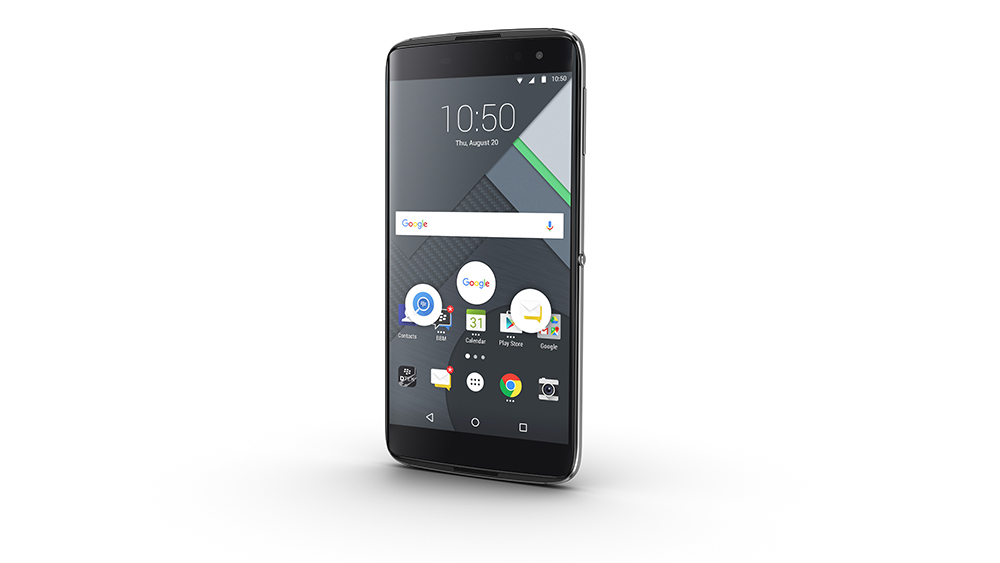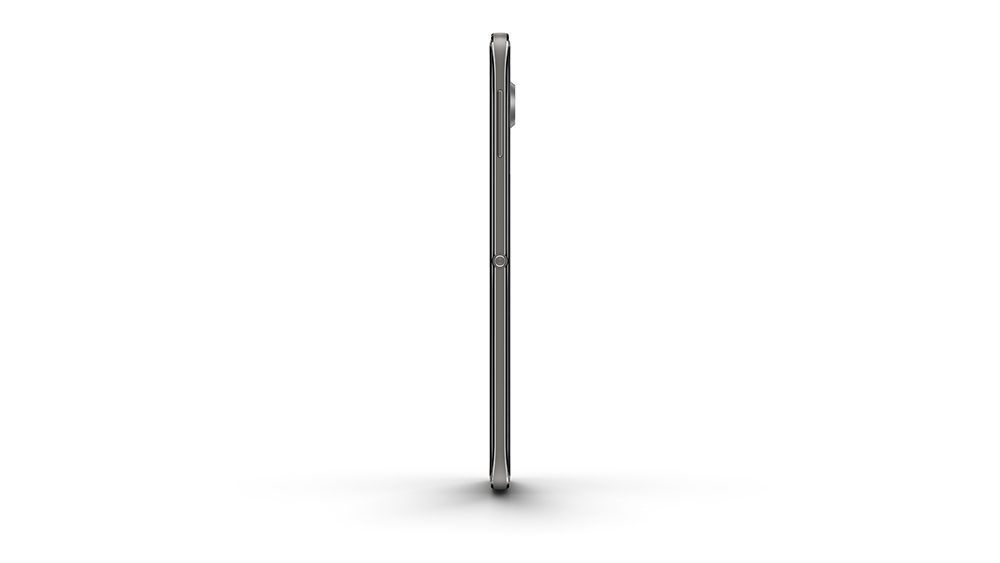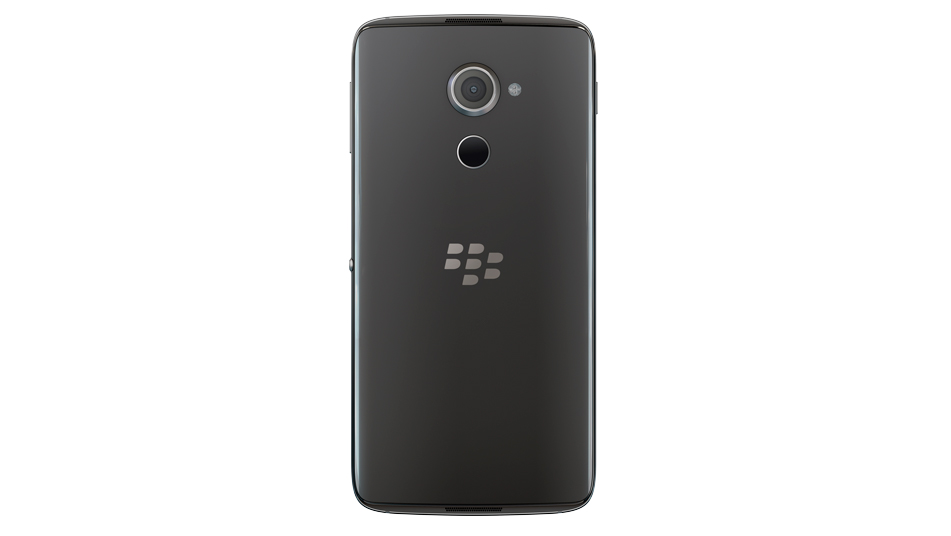BlackBerry DTEK60 review
Is BlackBerry’s new business smartphone enough to secure the company’s future?

BlackBerry's latest Android phone features sub-par performance, a disappointing user experience and little to help it stand out from the crowd.
-
+
Strong focus on security; Good business productivity apps;
-
-
Poor performance; Few unique features;

BlackBerry's hardware business has fallen on hard times of late. Sales have not been kind to the company's smartphones, and it has chosen to rethink its business model. While BlackBerry will still release branded devices, the company is no longer going to design and build them, but will work with third-party manufacturers instead.
The BlackBerry DTEK60 is the latest result of this strategy. Produced in collaboration with Chinese firm TCL - parent company of Alcatel - the DTEK60 is BlackBerry's latest attempt to win back the enterprise market, featuring a boatload of security and mobile device management features.
Design
Based on the TCL 950, the DTEK60 will be immediately familiar to anyone familiar with other phones released under the TCL or Alcatel name.
The new phone is immediately distinct from other devices, thanks to a unique design. The frame is aluminium with a glass back, but the glass on the front and rear doesn't quite cover the whole surface area, leaving an unusual lip banding the edges. There are other odd quirks too, like the fact that the charging port is in the right-hand corner of the bottom edge, rather than the middle.
It's refreshingly different to most of the glass and metal smartphones currently on the market, but it does have problems. Like most glass-backed devices, the DTEK60's rear picks up grubby fingerprints with depressing speed, and the camera housing sticks out by about 2mm like an unpleasant wart.

While it doesn't feel cheap or poorly made, BlackBerry's new phone isn't particularly visually exciting. It's not as smooth or slick-looking as the Galaxy S7 Edge or the Pixel, and while it looks perfectly professional, it's definitely not going to turn any heads. That may not be what you're looking for in a business device, but rival devices have proved that users no longer need to choose between functionality and style.
Security
Security is one of the company's core strengths, and BlackBerry is focusing heavily on this aspect with the DTEK60. The company says it has worked with the manufacturers to inject security and encryption at the manufacturing layer and has supposedly done a lot of extensive work on locking down Android's notoriously insecure software.
Sign up today and you will receive a free copy of our Future Focus 2025 report - the leading guidance on AI, cybersecurity and other IT challenges as per 700+ senior executives
The kernel has been hardened, and BlackBerry has implemented a secure bootloader with multi-stage verification to stop some of the more common Android exploits. There's also remote device management features for overseeing enterprise deployments and continuous intrusion monitoring to try and ensure that any potential breaches are caught early.
BlackBerry devices had a reputation as one of the most secure smartphones in the business, but much of this reputation was based around the company's own-brand OS. Now that the company has moved to Android - an OS that has been plagued by a litany of zero-days, ransomware campaigns and other assorted vulnerabilities - some users could be forgiven for losing faith in its security credibility.
On the other hand, a large part of the Android's security woes stems from the fact that manufacturers have historically been slow to push out patches for the OS. Potential customers may be heartened to hear that BlackBerry has promised that fixes for any flaws will be pushed out to devices as soon as possible - meaning that users won't have to wait weeks to get gaping vulnerabilities plugged.
We're not qualified pen-testers, so we can't verify whether or not the DTEK60's security features back up BlackBerry's claim that it's the most secure Android smartphone on the market. Ultimately, whether or not it measures up to your security needs is likely to come down to whether your faith in BlackBerry's reputation outweighs Android's unfortunate history of vulnerabilities.
Features
Features are something of a let-down. There's no IP rating to speak of, which means that the DTEK60 isn't even splash-proof. Some form of water-resistance is now par for the course for virtually all new devices, so it's a shame to see BlackBerry so behind the curve.
There's a fingerprint reader mounted on the rear for biometric login. BlackBerry has followed the lead of most other Android devices by mounting it on the rear, and while it's becoming increasingly clear that we're in the minority, we still prefer the front-mounted versions.

There's a MicroSD slot for expandable memory up to a theoretical limit of 2TB, although no manufacturer has yet made a card that large. It's nice to know that the DTEK60 is future-proofed in terms of storage, though.
Perhaps the most unusual feature is the 'convenience key' - a physical button below the volume rocker on the side of the device that can be programmed with a whole host of different shortcuts. It can be set up to perform system functions like toggling the Wi-Fi, volume or torch on and off, as well as in-app actions like starting an email or playing a playlist.
It's an interesting little feature, but we're not sure how much time it's likely to save you unless you spend a lot of time repeatedly performing one action. We'd prefer it if you could assign it to do different things when different apps are open; composing a tweet when Twitter is open, for example, or pausing your music if you're in Spotify.
Adam Shepherd has been a technology journalist since 2015, covering everything from cloud storage and security, to smartphones and servers. Over the course of his career, he’s seen the spread of 5G, the growing ubiquity of wireless devices, and the start of the connected revolution. He’s also been to more trade shows and technology conferences than he cares to count.
Adam is an avid follower of the latest hardware innovations, and he is never happier than when tinkering with complex network configurations, or exploring a new Linux distro. He was also previously a co-host on the ITPro Podcast, where he was often found ranting about his love of strange gadgets, his disdain for Windows Mobile, and everything in between.
You can find Adam tweeting about enterprise technology (or more often bad jokes) @AdamShepherUK.
-
 AWS CEO Matt Garman isn’t convinced AI spells doom for the software industry – but admits providers will “have to innovate” to stay afloat
AWS CEO Matt Garman isn’t convinced AI spells doom for the software industry – but admits providers will “have to innovate” to stay afloatNews Software stocks have taken a beating in recent weeks, but AWS CEO Matt Garman has joined Nvidia's Jensen Huang and Databricks CEO Ali Ghodsi in pouring cold water on the AI-fueled hysteria.
By Ross Kelly Published
-
 Fake North Korean IT workers are rampant on LinkedIn – security experts warn operatives are stealing profiles to apply for jobs and infiltrate firms
Fake North Korean IT workers are rampant on LinkedIn – security experts warn operatives are stealing profiles to apply for jobs and infiltrate firmsNews The scammers' latest efforts mark a significant escalation in tactics, experts have warned
By Emma Woollacott Published
-
 Kyndryl wants to help enterprises keep AI agents in line – and avoid costly compliance blunders
Kyndryl wants to help enterprises keep AI agents in line – and avoid costly compliance blundersNews Controls become machine‑readable policies that AI agents can read and must obey
By Emma Woollacott Published
